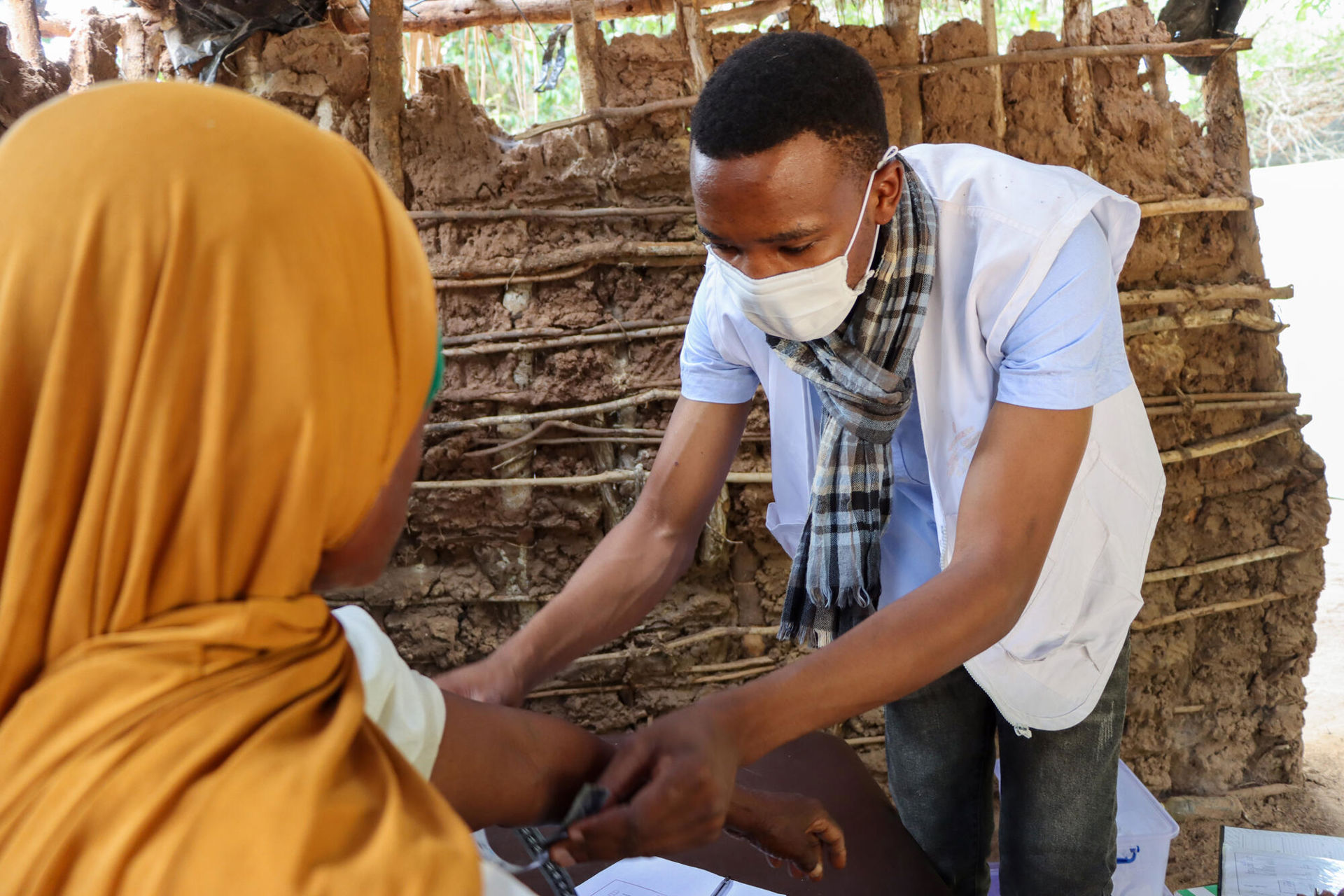How do you provide care for patients in a way that does not harm the environment? - This is the question Médecins Sans Frontières (MSF) is trying to solve as the devastating impacts of the climate emergency are increasingly felt across the world. With the health sector responsible for around 5 % of carbon emissions worldwide, health providers need to find ways to reduce their environmental impact.
This is why MSF launched an initiative to find alternatives to single-use surgical facemasks - one of the items most used by MSF medical staff across projects worldwide. Single-use medical items constitute an important share of emissions generated by the health sector in general. Within MSF, they account for nearly 12% of the emissions of the products purchased by MSF. They also create a lot of waste, which must be disposed of safely.
“We went from using some fifty thousand masks per year in 2011 to over five hundred thousand in 2023,” says Dr Monica Rull, Medical Director of the MSF Operational Centre in Geneva, which oversees medical projects in 30 countries. “Knowing that our own practices contribute to harming the environment – and therefore also the very people we aim to assist, we were very aware that we would have to find another way.”
In June 2023, MSF medical teams in Mozambique and Kyrgyzstan started a pilot initiative to replace single-use surgical facemasks with washable face masks that can be used up to 40 times. The objective was to compare the environmental impact of the single-use mask versus the washable one and to determine whether reusable masks can work logistically in the different settings MSF works in.  MSF nurse wears a reusable face mask during a patient consultation in northern Mozambique. © Lourino Pelembe/MSF
MSF nurse wears a reusable face mask during a patient consultation in northern Mozambique. © Lourino Pelembe/MSF
A life cycle assessment was carried out in partnership with the Technische Universität Berlin, which assessed the masks “from cradle to grave”, meaning the material used to create the mask, the transport to the manufacturing facility, the production and packaging of the mask, as well as transport to the point of use, any eventual reprocessing and the final disposal of the masks. This assessment showed that the washable mask significantly outperformed the single-use one. MSF staff also generally preferred the washable one, saying it as more comfortable to wear.
The experience in Kyrgyzstan and Mozambique showed that it is not only feasible to reduce single-use surgical masks, but that it also has a positive impact on the environment and reduces carbon emissions, without compromising the quality of care or safety of patients and medical staff. The long-term ambition is to replace a significant proportion of single-use masks with more sustainable alternatives across MSF medical projects and with these results in hand, the next step is to roll out the washable masks as soon as possible.
Nelson Domingos Nuvunga, MSF nurse in Mozambique, says he is encouraging colleagues to use these masks,
because as health workers, we understand the impacts of climate change very well. But also, I think it’s our duty as human beings, to save our planet.
Every effort counts. Changing just one mask won’t make a difference, but changing many masks will. The mask project is just one initiative within MSF’s larger effort to be more environmentally responsible. MSF has pledged to reduce its carbon emissions by at least 50 per cent compared to 2019 levels by 2030.



